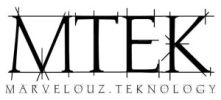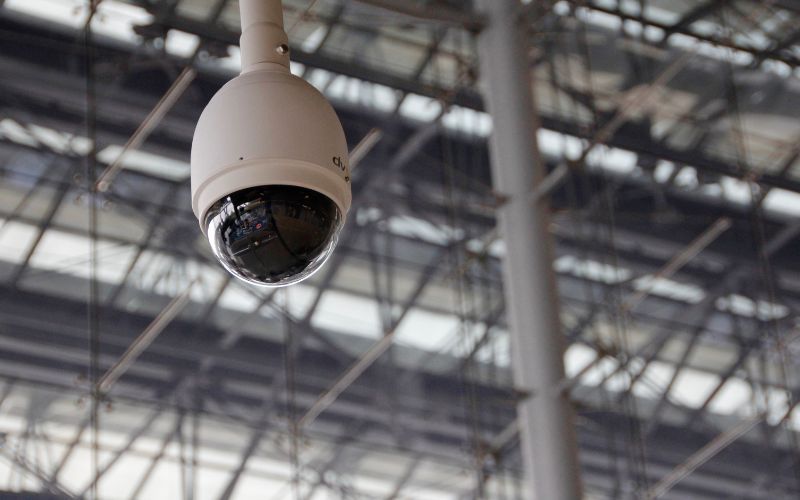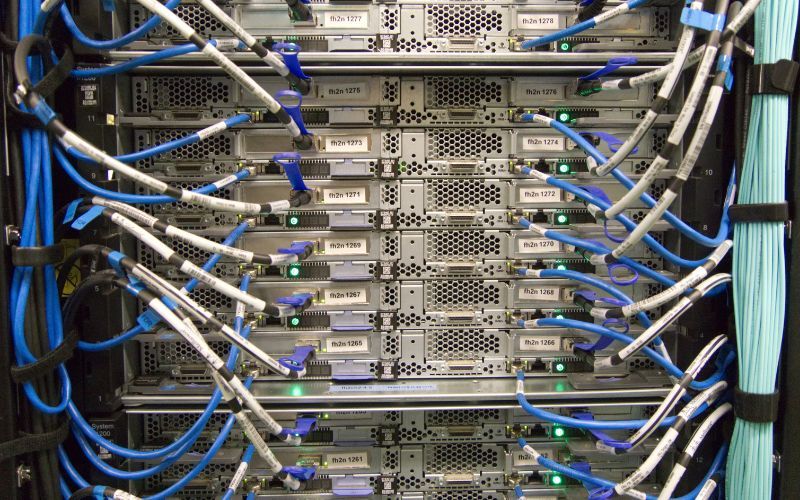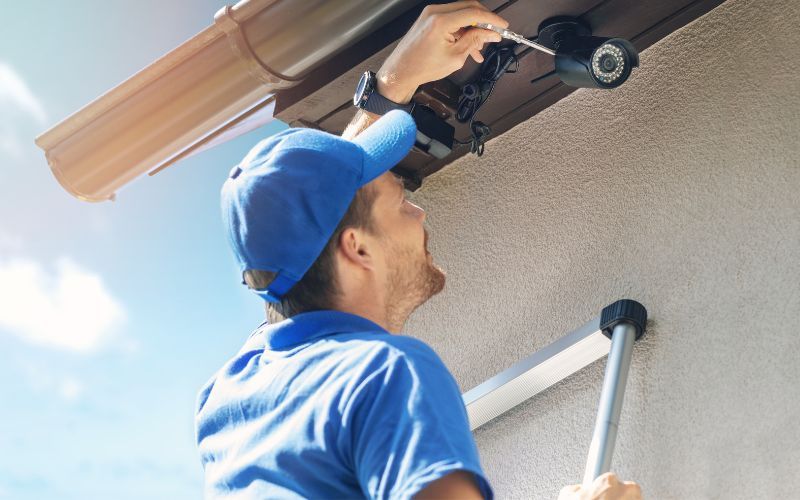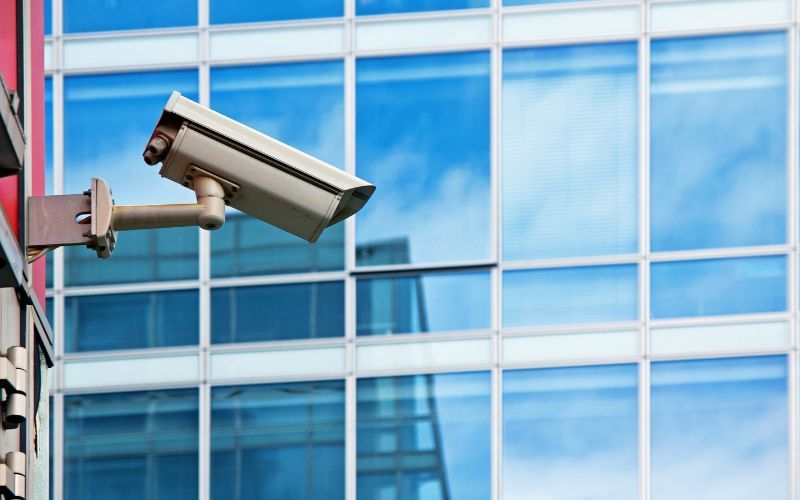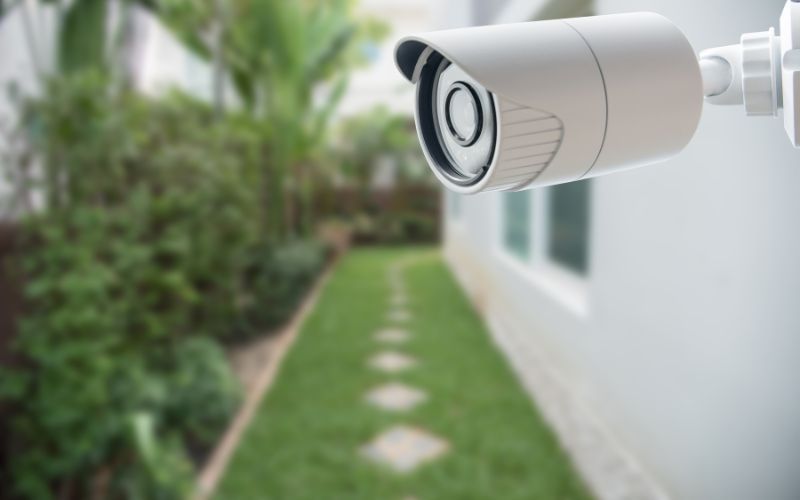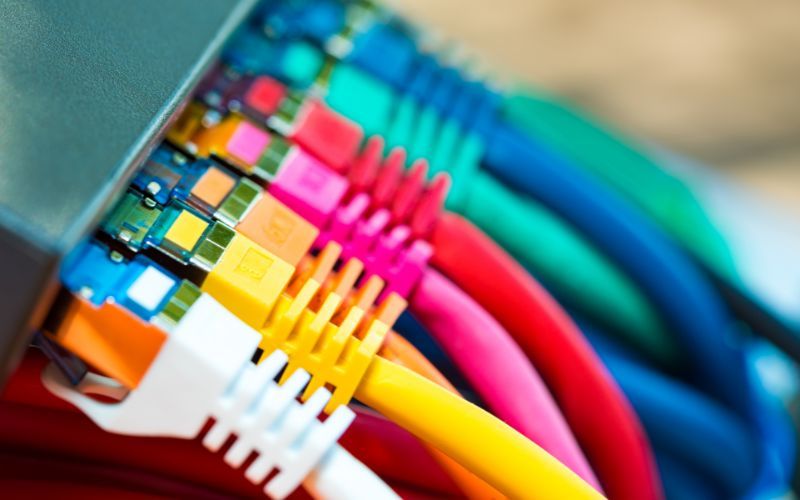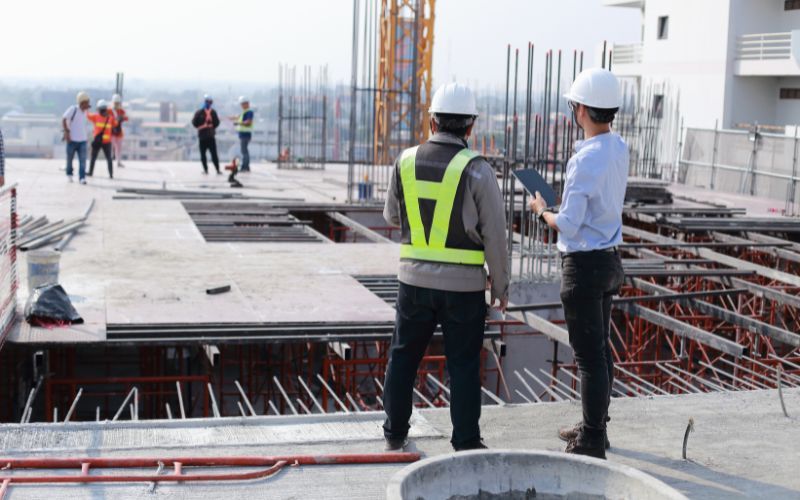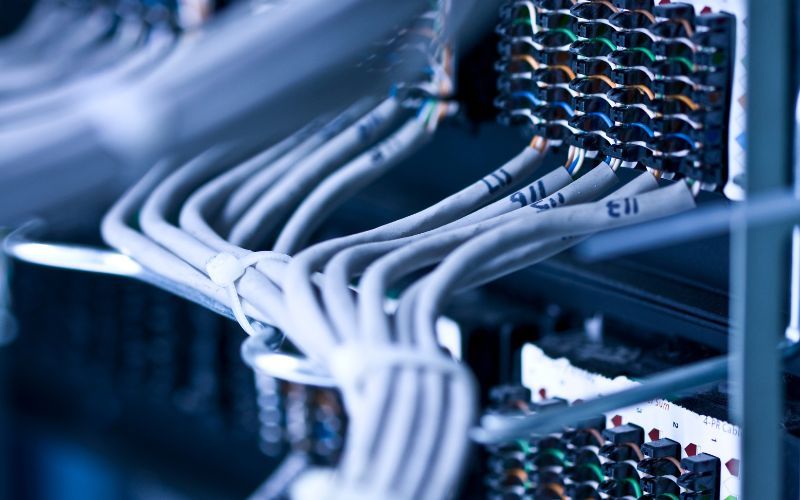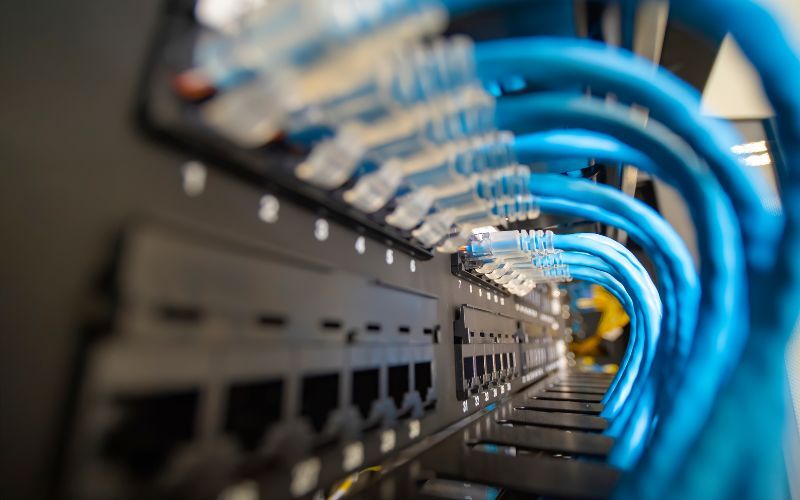The average cost of structured data wiring and installation for businesses in Baltimore, MD, ranges from $2,000 to $4,500, depending on the size of the project and specific requirements. Structured data wiring is a crucial aspect of any modern business infrastructure, providing the backbone for communication networks, including internet, phone, and internal data systems.
In Baltimore, a city known for its growing business landscape, vibrant tech innovation, and expanding startups, reliable structured data wiring is essential to maintaining competitive and efficient operations. It ensures seamless connectivity, supports high-speed data transfer, and minimizes downtime.
But what is the average cost of structured data wiring & installation for your business in Baltimore, MD?Understanding the costs involved can help business owners plan and budget effectively while ensuring their network infrastructure is robust and scalable. So, let’s delve into the details to guide your decision-making process.
What Is Structured Data Wiring
Structured data wiring involves designing, installing, and managing a standardized cabling infrastructure that supports a business’s communication and data transfer needs. This includes wiring for internet connectivity, telephone systems, and other digital communications necessary for everyday operations. A well-organized system ensures efficient data flow, reduces downtime, and supports future scalability as your business grows.
Here are the key components of structured data wiring:
- Cabling: Typically, Cat5e, Cat6, or Cat6a cables are used, depending on the speed and data capacity requirements.
- Patch Panels: They connect and organize the cables.
- Racks and Cabinets: They house all the wiring equipment, keeping it organized and protected.
- Jacks and Outlets: Endpoints where devices connect to the network.
- Cable Managers: These devices keep cables neatly organized, preventing tangles and improving airflow around equipment
- Switches: These devices connect various network segments, allowing for efficient data transfer between computers, servers, and other devices within the network.
- Conduits and Trays: Used to route and protect cables, conduits, and cable trays to ensure the wiring is securely installed.
What Determines the Cost of Structured Data Wiring in Baltimore
Understanding these elements will help you better predict your budget needs and adjust your project scope accordingly.
Scope of Work and Cabling Type
The number of workstations and cabling chosen significantly affect costs. More workstations require more cabling, jacks, and outlets, increasing costs. Also, higher quality cables like Cat6 or fiber optics are more expensive but provide faster speeds and more reliability.
Building Layout and Size
The building’s layout and size determine the complexity and cost of the wiring installation. Older buildings or those with complex layouts may require additional labor, increasing costs. The distance between the equipment is a cost factor. Longer cable runs require more materials and can affect signal strength, necessitating additional hardware to maintain performance.
Type of Business
The nature of the business impacts the network wiring needs. Businesses that handle large amounts of data, such as tech firms or call centers, may need more advanced and extensive wiring solutions. Businesses with higher security needs may require specialized cabling or additional installations like security cameras and access control systems.
Labor Costs
Local labor rates and the complexity of structured cabling impact the overall cost. Labor costs in Baltimore can vary, with skilled technicians commanding higher rates. Also, more complex projects or those that need to be completed outside of normal business hours may incur additional labor charges.
Permits and Compliance
Compliance with local regulations in Baltimore, including obtaining necessary permits and adhering to city codes, can add to the cost of network wiring projects. You may need permits for significant wiring installations, so compliance with city codes can add to costs. Required inspections for compliance with safety and building codes can also contribute to the total cost.
Benefits of Investing in Structured Data Wiring
Investing in structured data wiring is not just about initial costs; it’s about future-proofing your business. Here are some key benefits:
- Enhanced Performance and Speed: Faster data transfer speeds and reliable connections ensure your business operations are not hindered by slow or intermittent connectivity.
- Scalability: Structured wiring systems are designed to accommodate growth. As your business expands, your network can easily scale without needing a complete overhaul.
- Reduced Downtime: A properly installed and managed structured wiring system minimizes downtime caused by connectivity issues, boosting productivity.
- Cost Efficiency in the Long Run: Although the initial investment may seem high, structured wiring reduces maintenance costs and supports future technological upgrades without major disruptions.
- Improved Network Security:Structured wiring allows for better control over network access points, making it easier to implement security measures and protect sensitive data from unauthorized access.
- Simplified Troubleshooting and Maintenance: A well-organized wiring system simplifies maintenance and troubleshooting, allowing issues to be identified and resolved quickly, reducing potential disruptions.
- Support for Advanced Technologies: Structured wiring supports advanced technologies like VoIP, video conferencing, and IoT devices, enhancing business communication and operations.
- Enhanced Aesthetics and Safety: Neat and organized wiring reduces clutter, improving the workspace’s appearance and safety by minimizing the risks of tripping hazards or fire caused by tangled cables.
Understanding the Different Cabling Options for Structured Data Wiring
Different types of cabling offer varying levels of speed, performance, and cost-effectiveness. By understanding these options, you can select the ones that best suit your business needs in Baltimore, MD. Here are some common cabling options used in structured data wiring and their specific benefits:
Cat5e Cabling
Overview: Cat5e (Category 5 enhanced) cabling is a popular choice for many small to medium-sized businesses due to its affordability and reliable performance for basic data needs.
Performance: It supports speeds up to 1 Gbps and is ideal for less data-intensive environments, such as small offices or retail spaces.
Benefits: Cost-effective, easy to install, and sufficient for standard internet and phone connections.
Cat6 Cabling
Overview: Cat6 cabling offers a step up from Cat5e, providing faster speeds and better performance, especially in environments with higher data demands.
Performance: It supports speeds up to 10 Gbps over short distances and is suitable for businesses that require more robust data transmission, such as those with multiple workstations or devices.
Benefits: Better performance, reduced crosstalk, and future-proofing for moderate data growth.
Cat6a Cabling
Overview: Cat6a (Category 6 augmented) is an advanced option designed for high-performance networks that require reduced interference and higher bandwidth.
Performance: It can handle speeds up to 10 Gbps over longer distances compared to Cat6, making it ideal for larger spaces or businesses with heavy data usage.
Benefits: Enhanced shielding, minimal signal loss, and superior performance in high-demand environments.
Fiber Optic Cabling
Overview: Fiber optic cabling is the pinnacle of data cabling, providing the highest speeds, bandwidth, and reliability for businesses with significant data needs or those planning for future technological advancements.
Performance: Capable of handling virtually unlimited data at extremely fast speeds, fiber optics are perfect for data centers, tech firms, and businesses looking to maximize their network performance.
Benefits: Maximum speed and bandwidth, immune to electromagnetic interference, and scalable for future technologies.
Cat7 Cabling
Overview: Cat7 cabling offers superior shielding and performance compared to Cat6a, designed for environments requiring minimal interference and high-speed data transfer.
Performance: It supports speeds up to 10 Gbps over even longer distances with improved shielding, making it suitable for more demanding network setups.
Benefits: Superior noise reduction, high data transfer rates, and enhanced durability, making it ideal for large-scale commercial or industrial applications.
Cat8 Cabling
Overview: Cat8 is the latest evolution in copper cabling, engineered for ultra-high-speed data centers and enterprise networks requiring top-tier performance.
Performance: Capable of supporting speeds up to 40 Gbps over short distances, Cat8 is ideal for data centers and high-performance computing environments.
Benefits: Extremely high data transfer rates, excellent shielding, and future-proofing for the next generation of network technologies.
Structured Data Wiring Installation Process
Understanding the installation process can help set expectations and ensure you’re prepared for each project phase. Here’s a detailed look at the steps involved:
Initial Consultation and Site Survey
A professional team assesses your business needs and the physical layout of your building. They evaluate factors such as existing infrastructure, future scalability, and any potential challenges that may affect the wiring process.
Design and Planning
Based on the site survey, a detailed plan is created, specifying the type and amount of cabling, equipment, and layout. This phase includes creating blueprints, selecting the appropriate cabling types, and determining optimal paths for the wiring to minimize disruptions and maximize efficiency.
Installation and Testing
Technicians install the cabling, racks, patch panels, and outlets according to the plan. The installation process may involve running cables through walls, ceilings, and floors and carefully adhering to industry standards to ensure safety and performance.
Post-installation testing ensures everything functions correctly and meets performance standards, including verifying data transfer speeds and connectivity.
Labeling and Documentation
Proper labeling of all connections and documentation are crucial for future maintenance and troubleshooting. Each cable, port, and panel is clearly labeled to provide easy identification, which streamlines any future upgrades or repairs.
Final Walkthrough and Training
A final walkthrough with the client ensures all systems are operating as expected. Basic training on managing and troubleshooting minor issues is often provided, along with documentation that outlines how to handle routine maintenance and whom to contact for support or emergencies. This phase ensures your team feels confident and prepared to manage the new system.
Marvelouz Teknology for Your Structured Data Wiring Needs
In Baltimore, MD, where the business environment is competitive and rapidly evolving, a reliable structured wiring system can set your business apart. If you’re ready to enhance your communication infrastructure and future-proof your business, contact Marvelouz Teknology today.
Our team of experts offers comprehensive services, from initial consultation to installation and ongoing support, ensuring that your company has the structured data wiring it needs to thrive. We specialize in tailored solutions that meet each client’s unique needs, offering high-quality installations that adhere to the latest industry standards and Baltimore’s local regulations.
Don’t let outdated or insufficient data wiring hold your business back. Whether upgrading your existing infrastructure or setting up a new location, Marvelouz Teknology has the experience and expertise to deliver efficient, reliable, and scalable wiring solutions that keep your business connected. Call us now to ensure a more connected and productive business environment!
FAQs
Can structured data wiring be installed in an existing building?
Yes, structured data wiring can be installed in existing buildings, though it may require additional planning and potential modifications to accommodate the cabling.
What type of businesses benefit most from structured data wiring?
Any business that relies on reliable internet and data transfer, such as offices, retail spaces, and industrial facilities, can benefit from structured data wiring.
Is structured data wiring a one-time investment?
While the initial installation is a significant investment, structured wiring typically requires minimal ongoing maintenance, making it a cost-effective long-term solution.
How often should structured data wiring be upgraded?
Upgrades depend on business needs and technological advancements. Typically, businesses should evaluate their wiring every five to ten years or when experiencing performance issues.
Can structured data wiring support wireless systems?
Yes, structured data wiring can support wireless systems by connecting wireless access points, ensuring robust and reliable wireless connectivity throughout the business premises.
Are there any regulations for structured data wiring in Baltimore?
Yes, local regulations and building codes in Baltimore may apply, requiring permits and inspections to ensure compliance with safety standards.
What are the potential downsides of not investing in structured data wiring?
Potential downsides include slower data speeds, increased downtime, higher maintenance costs, and challenges in scaling the business’s technology infrastructure.
